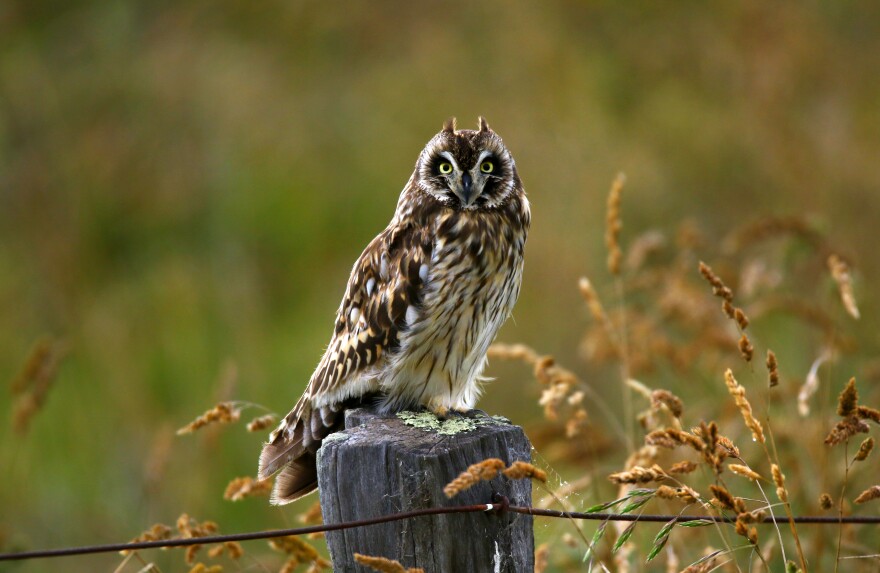Special thanks to the Macaulay Library at the Cornell Lab of Ornithology for use of their recordings in today's Manu Minute.
The pueo, or Asio flammeus sandwichensis, is one of ten subspecies of the short-eared owl. With the exception of Australia and Antartica, the short-eared owl can be found on every continent and many Pacific islands. Collectively, it has one of the most extensive ranges in the avian world.

Like other short-eared owls, our pueo may move across the landscape following rodent outbreaks. However, the pueo will also prey upon birds, including native species.
The pueo is diurnal, so the best time to spot one is during daylight hours. If you see an owl hunting at night, it is likely an introduced Barn owl.
Since their arrival, pueo have been an important element in the native culture of Hawai'i. They are sacred as ˊaumākua and play vital roles in many moˊolelo.
While populations of pueo have proved resilient amidst habitat loss and predation, they face some unique challenges. As they hunt at dawn and dusk, they are often the victims of car-strikes where their territory crosses major roadways. And as apex predators in our avian community, pueo can get sick from contaminants that build up in their prey.
The State of Hawai'i has listed pueo as endangered on O'ahu island.
Read or hear more about the birds of Hawaiˊi on our Manu Minute page.
Audio credit: Daniel Lane/Macaulay Library at the Cornell Lab of Ornithology (ML218186)






